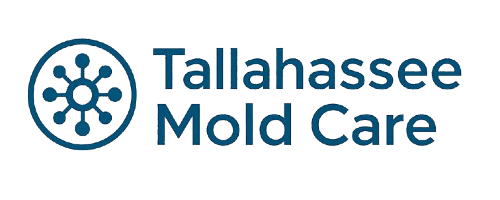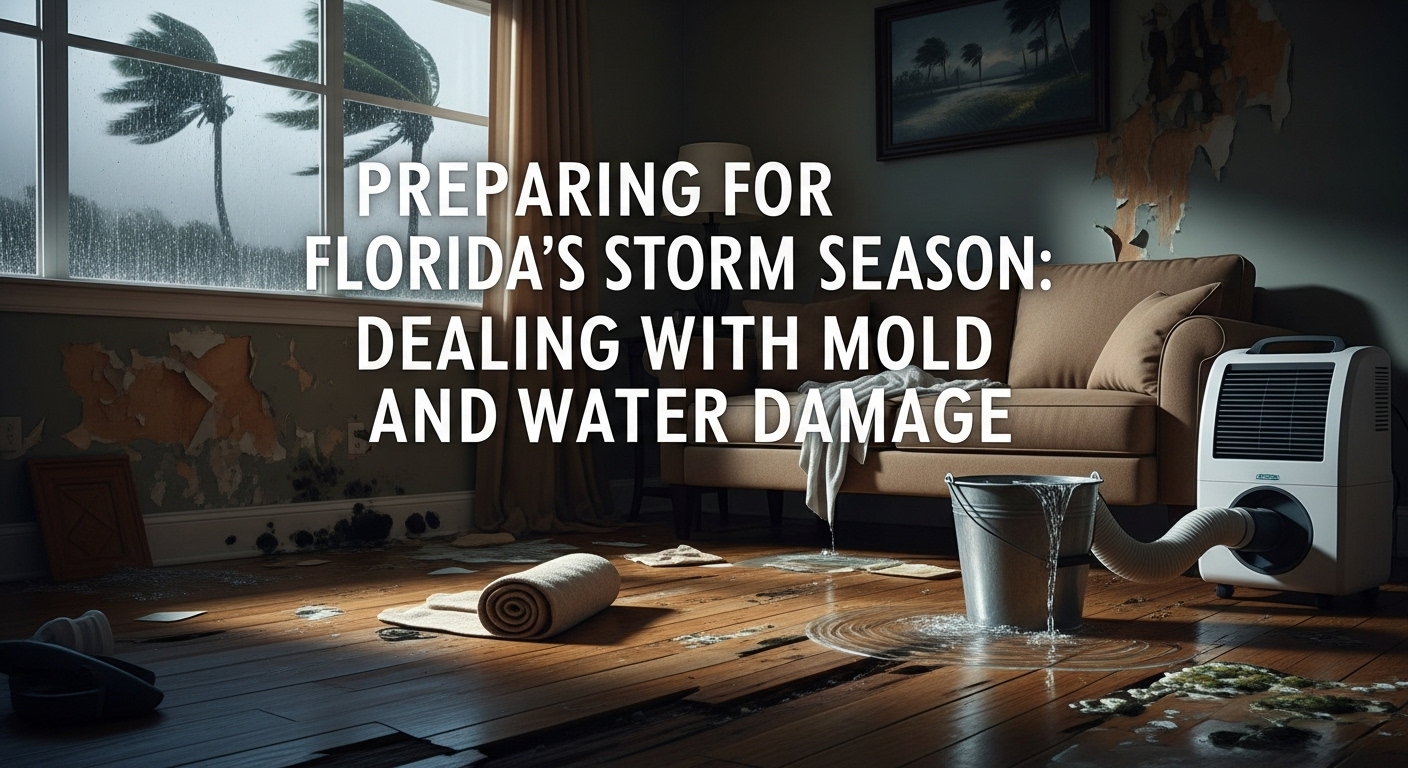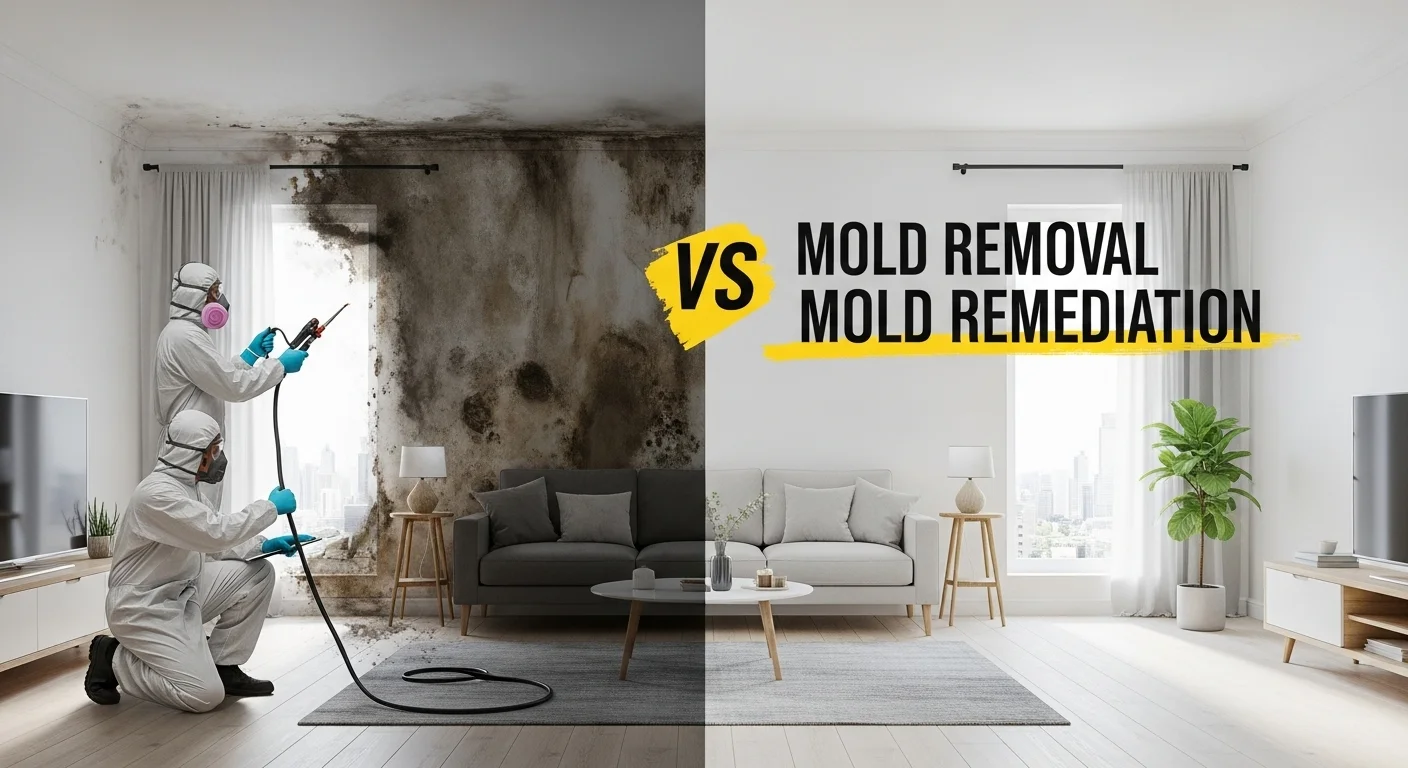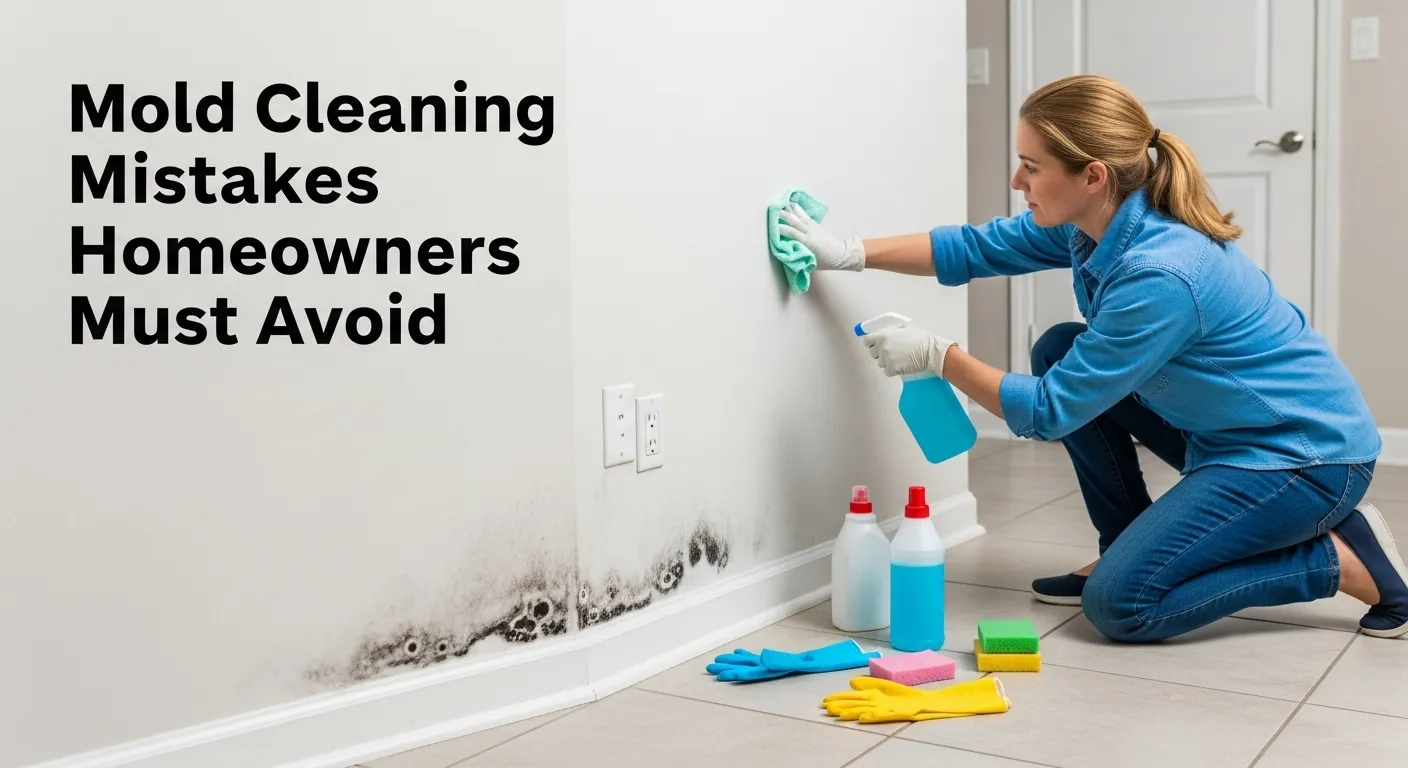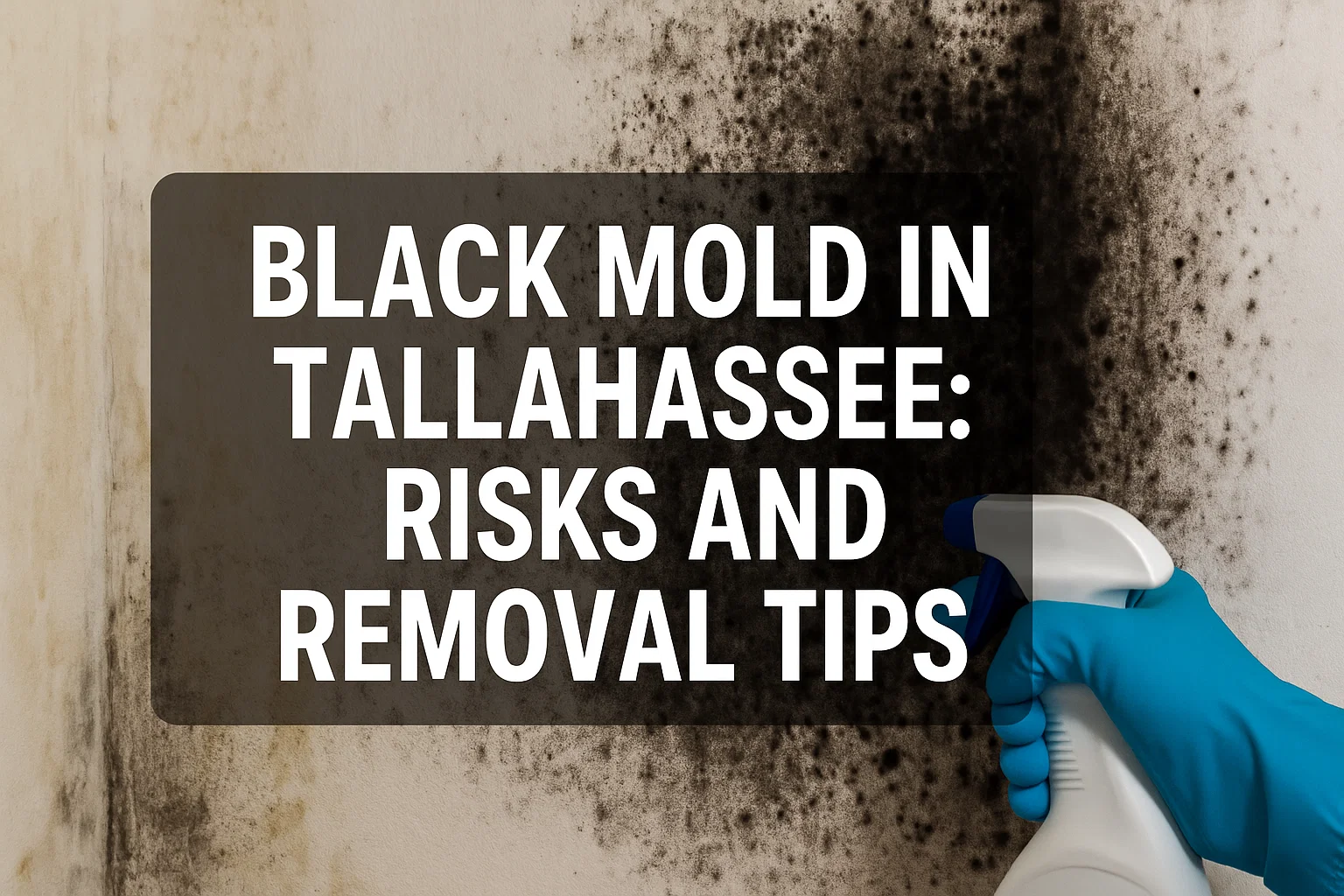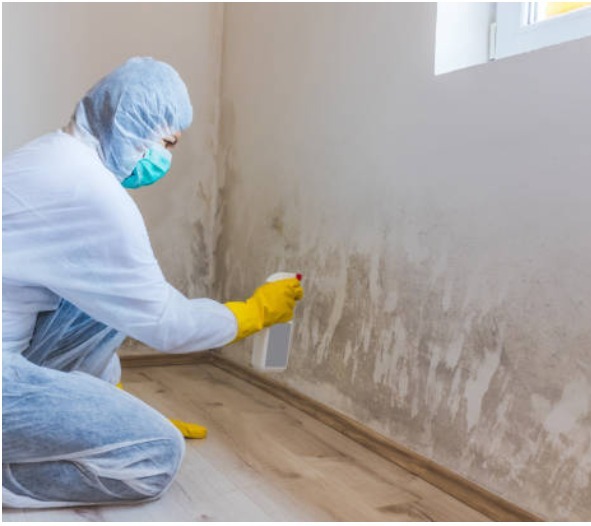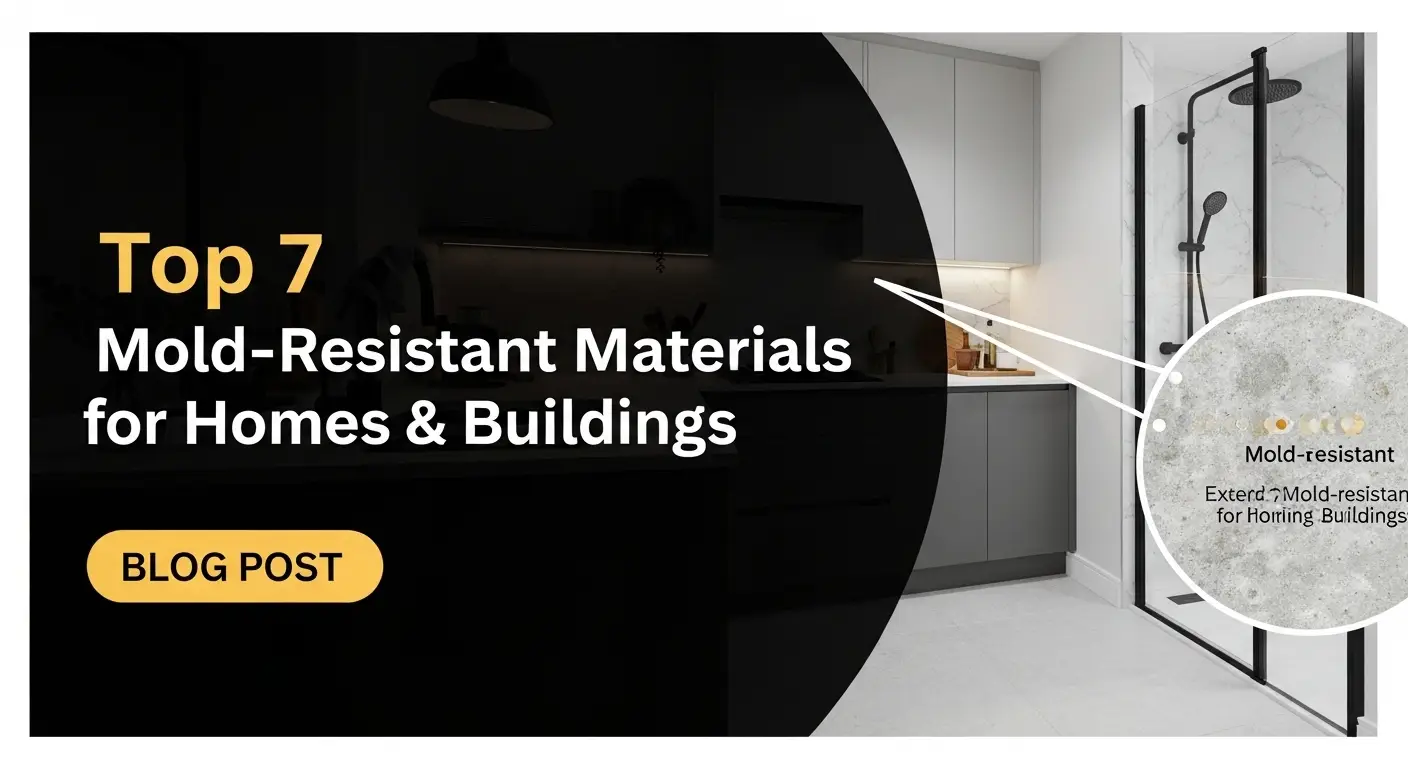Mold is a year-round threat to both your health and home. Frequent storms, and a climate that encourages moisture buildup, mold problems can develop and spread even faster in Florida.
Whether you’re a homeowner or business owner, understanding how mold works — and how to stop it — is critical. But with so much conflicting information online, it’s hard to know what’s fact, what’s outdated, and what actually applies Florida’s environment.
That’s why we’ve created this expert, locally focused guide in which you’ll find clear, trustworthy answers to the most common FAQs about mold removal, testing, health risks, prevention, and local regulations in Tallahassee, Florida. Let’s get started — because when it comes to mold, the sooner you act, the safer your home stays.
1) What is mold, and why is it common in Florida?
Mold is a type of fungus that thrives in damp, humid environments. It spreads through microscopic spores that float in the air and settle on moist surfaces. In Florida—especially in cities like Tallahassee—high humidity and frequent rainfall create the perfect environment for mold growth. Combine that with warm temperatures and occasional flooding, and mold can appear in homes faster than most people expect.
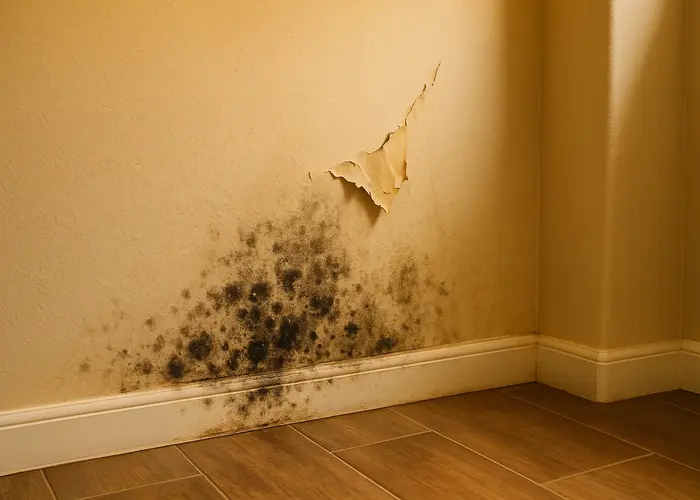
2) Is mold different from mildew?
Yes. Mold and mildew are both fungi, but they behave differently. Mildew tends to stay on the surface and appears as a thin, white or gray patch—often found on shower walls or windowsills. Mold, on the other hand, can be green, black, or even orange. It penetrates deeper into building materials like drywall and wood.
3) What are the most common types of indoor mold in Tallahassee homes?
Several mold types are frequently found in North Florida homes. The most common include:
4) How does the Florida climate contribute to mold growth?
Tallahassee’s subtropical climate plays a major role in indoor mold issues. With average humidity levels often above 70%, moisture lingers in the air, especially during summer. Thunderstorms, hurricanes, and even brief roof leaks can lead to water intrusion.
5) What are the signs of mold in your home?
Mold often hides in plain sight. You might not always see it, but the signs are there if you know what to look for.
Common indicators include:
If any of these symptoms show up in your home, especially after heavy rain or flooding, it may be time to schedule a professional mold inspection.
6) What does mold smell like?
Mold has a distinct smell. Most describe it as earthy, musty, or stale — similar to wet socks or rotting wood. This odor comes from microbial volatile organic compounds (MVOCs) released during mold’s growth process.
You might notice it more in enclosed spaces like closets, crawl spaces, or behind furniture. If the smell returns even after cleaning, spores may be growing in hidden areas like HVAC ducts or inside walls.
7) Can mold be invisible?
Yes. Not all mold is visible to the eye. In fact, some of the most dangerous mold problems grow behind drywall, under carpets, or inside air conditioning units. You won’t always see black spots, but the spores and mycotoxins can still be present in the air.
8) Is it possible to have mold and not know it?
Absolutely. Many homeowners in Tallahassee live with mold and don’t realize it until the damage is done. Mold doesn’t always cause visible damage right away. It can live in insulation, behind tiles, or under flooring.
Over time, the exposure adds up — especially in homes with poor ventilation or high humidity. Children and people with asthma may start showing symptoms before you even notice a mold spot.
9) Why is moisture control key to mold prevention?
Mold doesn’t grow without moisture. That’s the golden rule. Whether it’s a roof leak, plumbing drip, or just Florida’s high humidity — moisture is the trigger.
When water enters a space and isn’t dried properly, it gives mold spores a place to settle and multiply. In many Tallahassee homes, this happens in bathrooms, crawl spaces, and kitchens where airflow is poor.
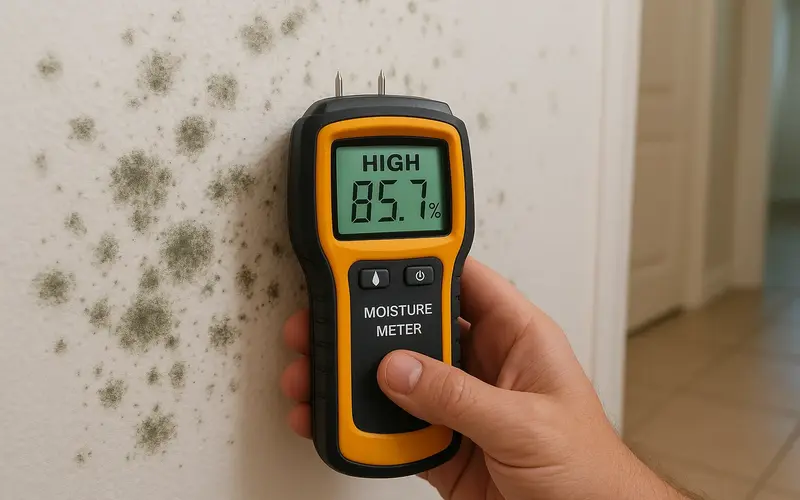
10) What are the top moisture sources in Tallahassee homes?
In Tallahassee, the climate itself is one of the biggest culprits. But it’s not the only one. Here are the most common moisture sources homeowners should watch for:
These moisture issues can lead to mold contamination deep inside building materials like drywall and wood.
11) How can I prevent mold after a hurricane or flood?
Floodwaters in Florida can leave behind serious damage — and mold is usually one of the first problems to follow. After any water intrusion, time is critical.
Here’s what to do:
The IICRC (Institute of Inspection, Cleaning and Restoration Certification) offers guidelines for flood cleanup and mold prevention, especially in high-risk areas like Florida.
12) Do crawl spaces and attics in Tallahassee contribute to mold growth?
Yes — and they’re often the most overlooked areas in a home. In Tallahassee, crawl spaces tend to trap moisture due to poor drainage and ventilation. When the ground stays wet and air doesn’t circulate, mold thrives. Similarly, attics can collect humid air and roof leaks, especially during storm season.
13) How does mold affect human health?
Mold releases tiny spores into the air. These spores can irritate your nose, throat, lungs, and eyes. For healthy adults, the effects might be mild. But for others, exposure can lead to serious health issues.
14) Can mold make my family sick?
Yes. Mold can cause short-term and long-term health problems. In some cases, it may just feel like a cold that won’t go away. In others, it can lead to serious breathing problems or infections.
Common symptoms include:
Children and elderly family members are particularly at risk. So are people with asthma, seasonal allergies, or compromised immune systems.
15) What symptoms are associated with mold exposure?
Mold exposure symptoms often resemble allergy symptoms, which is why they’re easy to miss.
Here’s a list of symptoms you should watch for:
If these symptoms improve when you are away from home, mold could be the cause.
16) Is mold dangerous for children, elderly, or immunocompromised people?
Absolutely. These groups face a higher risk of mold-related health problems. Young children have developing lungs and immune systems. The elderly often have weaker defenses. For both, exposure to mold spores — especially mycotoxins produced by Stachybotrys — can be serious or even life-threatening.
In homes with known mold growth, the safest option is professional remediation and temporary relocation until the environment is safe.
17) Should I test for mold or just remove it?
In many cases, if you see visible mold, testing isn’t necessary. The EPA also recommends skipping testing and going straight to remediation when mold is clearly present. But if you’re unsure, smell something musty, or suspect hidden mold behind walls or under floors, testing helps identify the extent of the issue.
18) What is the Environmental Relative Moldiness Index (ERMI)?
The ERMI is a DNA-based test developed by the EPA. It uses dust samples to measure mold species inside a home. It gives you a moldiness score, ranking your home compared to a national database.
ERMI is more advanced than basic air sampling because it identifies specific mold types — including dangerous ones like Stachybotrys and Aspergillus. While ERMI isn’t standard in all inspections, some mold professionals in Florida use it for detailed diagnostics, especially in complex or recurring cases.
19) Are DIY mold test kits reliable?
DIY mold kits are widely available, but they often fall short. Many test kits can tell you that spores are present — but not what kind they are, how much is in the air, or whether they pose a health risk. If you want peace of mind and real answers, it’s best to hire a certified mold inspector.
20) Who in Tallahassee is certified to test for mold?
In Florida, mold assessors must be licensed by the Florida Department of Business & Professional Regulation (DBPR). Always look for professionals with a Florida mold assessor or remediator license.
Licensed mold experts use tools like moisture meters, thermal imaging, and HEPA sampling to identify hidden growth and determine the right next steps.
21) What should I expect during a professional mold inspection?
A professional mold inspection in Tallahassee typically includes:
Some inspectors may also use the ERMI test, depending on the severity and type of property. Inspections usually take 1–3 hours, depending on your home’s size and condition.
22) What are the steps in professional mold removal?
Professional mold remediation follows a structured process to eliminate the source and prevent future growth. Here’s how it typically works:
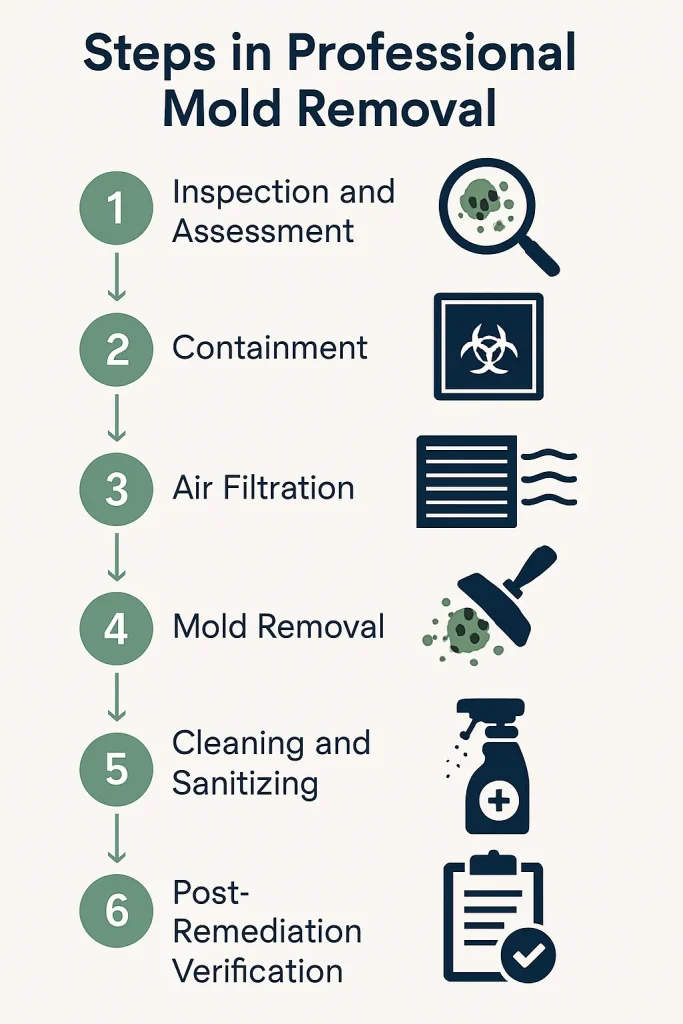
23) Can I clean mold myself, or do I need a professional?
You can clean small areas of mold (less than 10 square feet) with basic safety gear and proper cleaners. But if the area is larger than a sheet of drywall then hire a licensed mold remediation company. Improper DIY cleanup can spread spores, worsen exposure, and lead to long-term damage.
24) Is bleach effective for mold removal?
No, bleach is not recommended for porous materials like drywall or wood. It may remove surface stains, but it doesn’t kill mold roots. It can also produce harmful fumes and worsen indoor air quality.
Instead, use EPA-registered fungicides or anti-microbial solutions designed for mold remediation. These are safer and more effective.
25) Does UV light or ozone remove mold effectively?
UV light can kill mold spores in air ducts or HVAC units, but it doesn’t remove mold from surfaces. Ozone machines are sometimes promoted as mold solutions, but they can be dangerous.
The EPA warns that ozone exposure can harm your lungs and doesn’t work well on hidden mold. Stick to proven methods: moisture control, HEPA filtration, and proper sanitization.
26) What are the best mold removal products?
Here are products professionals often use:
27) How long does mold remediation take?
The time depends on the size of the problem. Small jobs can take a day or two. Larger cleanups — involving full containment, demolition, and drying — may take up to a week or more.
28) How do I find a licensed mold remediation company in Tallahassee?
Start by searching for locally licensed and insured mold remediation professionals. In Florida, companies must hold a mold remediator license issued by the Florida Department of Business and Professional Regulation (DBPR).
Hiring local ensures faster service — and builds trust with a company that knows the unique mold conditions in North Florida.
29) What certifications should mold contractors have?
Besides state licensing, top mold remediation companies should have certifications that prove their training and standards. Look for:
These certifications show the company is serious about safety, effectiveness, and legal compliance.
30) What questions should I ask before hiring?
Ask these right questions to avoid future headaches. Here are key ones:
A professional company will answer these questions confidently and clearly.
31) How much does mold remediation cost in Tallahassee?
Costs vary depending on the size of the affected area and the location of the mold. On average, homeowners in Tallahassee pay between $1,000 and $6,000 for mold remediation. Large-scale damage after flooding or hurricanes may cost more.
Always request a detailed written estimate. Avoid companies that offer “flat-rate” pricing without seeing the extent of the problem.
32) Does homeowner’s insurance cover mold removal?
It depends on the policy and the cause of the mold. Most homeowner’s insurance policies in Florida do not cover mold unless it was caused by a sudden and covered peril — like a burst pipe.
Mold caused by long-term neglect, poor ventilation, or humidity is usually excluded. Some policies offer limited mold coverage add-ons. If you live in a high-humidity area like Tallahassee, this extra protection can be worth it.
33) Who is responsible for mold in rental properties in Florida?
In Florida, the law doesn’t specifically assign mold responsibility in rental housing. However, landlords are legally required to maintain livable conditions under Florida’s warranty of habitability. That includes managing moisture problems and fixing water leaks quickly.
If mold appears due to roof leaks, faulty plumbing, or poor building maintenance, the landlord is typically responsible. On the other hand, if mold results from tenant neglect — such as not using exhaust fans or ignoring leaks — the tenant may share responsibility.
If mold becomes a health hazard and the landlord doesn’t act, tenants can file a complaint with Florida’s Department of Health or consider legal options.
34) Can mold affect businesses or commercial buildings?
Yes. Mold doesn’t discriminate between homes and businesses. Commercial properties in Tallahassee are just as vulnerable — especially if they have older HVAC systems, Poor drainage around the building, Leaks from roofing or plumbing, Inadequate humidity control
Offices, restaurants, schools, and retail spaces can all develop mold problems. It can damage drywall, ceiling tiles, inventory, and electronics. Worse, mold affects employee health and productivity, potentially leading to legal issues or health code violations.
35) Are there Florida or Tallahassee-specific mold regulations?
Yes. While Florida does not have strict statewide limits on mold levels in indoor air, it does have licensing requirements for mold-related services. The Florida Mold-Related Services Statute (F.S. 468.84-468.8424) requires that anyone performing mold assessment or mold remediation must hold a valid license issued by the Florida Department of Business & Professional Regulation (DBPR).
36) Are there federal mold standards from EPA or CDC?
There are no federal laws that set mold exposure limits for homes or workplaces. However, the EPA and CDC provide clear guidelines on mold prevention, cleanup, and health risks. Visit epa.gov/mold and cdc.gov/mold for official guidance and safety practices.
37) How can I keep my home mold-free long-term?
Once mold is removed, keeping it from coming back requires consistency. The key is moisture control.
Here’s what you can do:
These steps are especially important in Tallahassee, where year-round humidity makes homes vulnerable.
38) Do air purifiers help with mold spores?
Yes — but only if they have the right filter.
Look for air purifiers with HEPA filters, which can trap particles as small as mold spores. While purifiers don’t kill mold, they reduce the number of airborne spores and improve indoor air quality. Some models also include activated carbon filters, which help eliminate musty odors.
Use them in bedrooms, living areas, or any space with a history of mold issues. Pair them with dehumidifiers for the best results.
39) What type of ventilation is best to prevent mold?
Good airflow keeps your home dry — and dry homes don’t support mold.
Here’s how to ventilate your home effectively:
Poor ventilation is one of the most common issues behind recurring mold in Tallahassee homes — especially after remediation.
40) What should I do if my house floods in Tallahassee?
When flooding happens — whether from a storm, hurricane, or burst pipe — your first priority is safety, followed closely by water removal. In Tallahassee, where heavy rains and hurricanes are common, fast action is crucial.
Here’s what to do immediately:
Don’t wait. Mold can begin growing in as little as 24 hours after a flood. The CDC and EPA both stress that drying out flooded homes within 24–48 hours is the most effective way to stop mold from taking hold.
41) Can mold grow on concrete?
Yes. While concrete is not an organic material, it can still support mold growth when it’s wet and dusty. Mold often grows on the surface or in cracks where moisture lingers. If your basement or foundation walls feel damp or smell musty, mold could be forming on or near the concrete.
42) Can mold come back after removal?
It can — but only if the moisture problem isn’t fixed. Mold remediation removes existing growth, but if high humidity or leaks continue, mold spores in the air can settle and start growing again. That’s why post-remediation prevention (like dehumidifiers and ventilation) is just as important as the cleanup.
43) Will painting over mold fix the issue?
No. Painting over mold only hides it — it doesn’t kill or remove the fungus. Mold will continue to grow under the paint, and the problem will get worse. You must remove the mold completely and fix the moisture source before repainting.
44) Can pets be affected by mold?
Yes. Just like humans, pets can breathe in mold spores and suffer symptoms like sneezing, coughing, skin irritation, and lethargy. In severe cases, mold exposure can cause respiratory distress in dogs, cats, and birds. If your pet’s symptoms improve when away from home, indoor mold could be the cause.
45) How often should I inspect for mold?
It depends on your home’s condition and location. In Tallahassee, where humidity and rainfall are high, it’s smart to check for mold:
Annual inspections by a licensed professional are also a good idea — especially if you’ve had mold problems before.
📌 Final Thoughts
Mold in Tallahassee is a problem you can manage — but only if you stay informed and proactive. Bookmark this guide. Share it with neighbors. Use it when you suspect a problem or just want peace of mind.
When you know the signs, take smart steps, and work with trusted local pros, you won’t just fix mold — you’ll prevent it from coming back.
📍 Local Mold Resources for Tallahassee Residents
When dealing with mold in your home or business, knowing where to turn locally makes all the difference. Contact Tallahassee Mold Care for mold inspections, remediation, prevention, and post-storm support.
